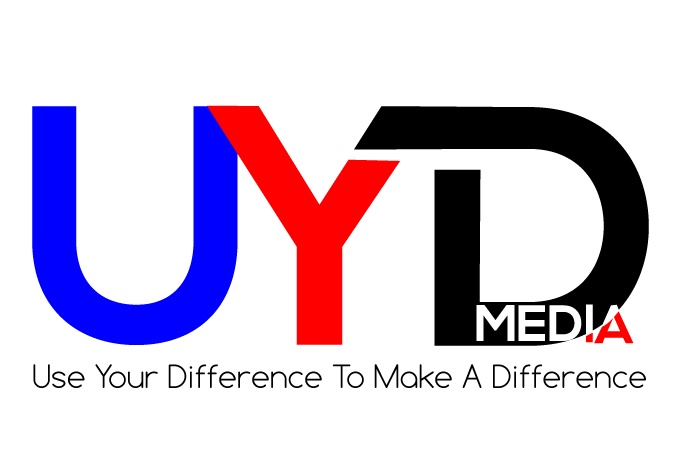Sandy is a Third Culture Kid I have had the pleasure of knowing these past few months and she is one multifaceted lady. She runs a creative writing fiction blog which follows the life of Michelle who goes through a lot of the same things that Global Nomads and Third Culture Kids experience. Check out her blog here. I definitely recommend it! You can subscribe, follow on Instagram, WordPress and on Facebook!
On a personal note, Sandy is an economist from Argentina based in Washington D.C. She has lived all over the world including US, France, Aberdeen Scotland, and Brazil. She speaks fluent Spanish, Portuguese, French, and English. WOW!
************************************************************************************************************************
I’ve always been everyone’s go-to translator. Back up to my first year at Stanford. Someone asked me to be their ‘Spanish buddy’.
“Sandy, can I do a short interview with you in Spanish? It’s for my Spanish class.”
“Sure, I’d love to”, and it was exciting. It was my Freshman year and no doubt I wouldn’t pass the opportunity to make new friends. They recorded our conversation while they asked me about my life, and seemed thoroughly interested. I don’t mean to brag, but I think it’s interesting too. There was never a boring year growing up. No need to watch TV. I always remarked that I was too entertained and playing catch up with everything that was going on in my own story.
The interviews themselves were fun. Beginners only had to record and sustain the conversation for 5 minutes, intermediates for 10 and advanced Spanish speakers, for 20. We were a dorm of 100 kids and a good percentage took Spanish. You can imagine that the first interview was ok, as were the next five after that. It was the next ten that killed it. No joke I started fearing meeting my ‘Spanish buddies’ in the halls.
Let’s fast forward to after college graduation and I started working for a fancy ‘political consulting’ firm in DC. It’s my first day and I’m sitting in front of the big shot who hired me.
“You know,” he says, “You were competing for this spot with two other girls from your same college.”
I smile internally and externally, “thank you for choosing me”, I want to say. But I have no time because he continues.
“We took you because you speak better Spanish than one and better Portuguese than the other”.
Well then, I think, I studied other things and never considered a career in translation, but, go ahead, use me. I don’t mean that sarcastically and I don’t think I ever will. I will work with what I got. If that’s what they need and it’ll land me a job, so be it! Please then, get me to translate stuff like my cousins did whenever I went ‘home’ and I was only five. It was always ‘Sandy, sing a song in this, sing a song in that’. I was shy back then and didn’t understand why anyways. It wasn’t like I was proud of it or I had worked for it, I had just sponged it up as a kid, and that was it.
So last week at work, I had the pleasure of teaming up with a gorgeous, smart girl to edit a publication my team is coming out with. We were yapping away improving the document in Spanish, expressing our ideas in English, switching to Portuguese when needed (she’s Brazilian), when my boss’s boss comes in. Let’s call him the Super Boss. I’m not kidding when I say the guy is another big shot.
“Sandy, Sandy,” he has a great Italian accent in Spanish. (You wouldn’t think I live in DC, because hardly get to speak English anymore. But that’s a whole separate story!). “You know, I talked to Anne, she’s going to take over the translation of the Spanish document to English.”
I gawked and thought: Wh-what? The huge document whose translation was unequivocally impending on me softly, like death? This just can’t be!
“You know, she’s a native English speaker and all.”
I held in my shock.
“What’s your native language again?”, he seemed confused.
“I- I don’t know,” I responded. All my life I’d been given that job and never did anyone say I wasn’t a native. Maybe it’s because I can’t say which language is my first that I even have the ability to perform those tasks.
“Well, since she’s American, I’ll give her that. You can work on the presentation we’re preparing in Spanish.”
The Super-Boss was right, I am not entirely American, that’s true and I understand that nationality might be a deal breaker for some people. But I’d say that despite me never speaking it with my family or in many of the countries we lived in, English is my strongest language. To be honest, my Brazilian co-worker and I had to Google Translate to make sure we made sense here and there in Spanish. Sometimes the only word that came up in my head was in French. Did I mention that’s another one of my childhood languages?
Only when I was 16 did things click and I started dividing the languages properly in my head. Even now, in mid-conversation I feel like screaming out sometimes “Just let me say it how it comes out!”, meanwhile I’m squirming in my seat and my conversation partner is probably thinking “What’s this girl’s problem anyhow? She’s taking too long to formulate a sentence!
Hold on, I’m going somewhere with this. That’s the thing with TCKs. You might find us off, ‘weird’ or ‘out of sync’. We might have, for instance, the worst notion of pop culture. Maybe we don’t even know who to cheer for in the Word Cup. Why? Because we didn’t watch the same stream of shows everyone did growing up and have affiliations to multiple countries. It was kind of tough as a child sometimes, I would move my lips to the anthem of my country when I visited because I was too embarrassed that I didn’t know it.
What gets me is that people in Argentina are always surprised. “Oh my gosh! You’ve been around the world but you haven’t been skiing in Bariloche?”. Bariloche is a popular high school graduation destination, a rite of passage for most kids there.
And that’s exactly the point. No I haven’t been to Bariloche. But yes, I did do other things. Perhaps you can’t understand the feeling of being in an International school, and the closeness you have with your classmates because you are both new and lost in a new school, over and over again. Maybe you don’t understand what it’s like to have everyone speaking in an unknown language around you when you’re a kid, you make noises to mimic what you hear around you, and slowly you understand you’ve moved to another ‘country’. What does that ‘country’ even mean when you’re a kid and have no notion of geography in the first place?
It’s an almost indescribable experience, it’s not categorizable. It’s like my language skills, it’s a mix and things blur into one another.
What does that imply? If languages are a mix in my brain, I have multiple national affiliations and my pop culture is an inconsistent mess, does that mean I have no identity? Does that mean I’m a blah, vanilla, limp mold of confused nothing? Actually no, it’s the opposite. I found that none of this implies I am without character. In fact, that character of multi-culturalism is very strong within me. With my beat-up passport and friends from all corners of the world, I’m very much, very strongly exactly that, making me the stereotype of a Third Culture Kid. Where there was always an exception to every other group I belonged in the margins of, all generalizations apply here. That might be hard to understand for others, but to me, and to the other TCKs I run into from time to time, it’s very clear. It is a mindset, and what I’ve been looking for all along, an identity.




